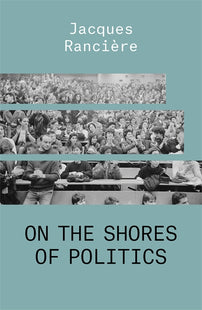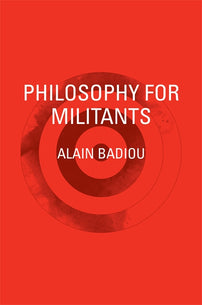Our Students are Self-Educating Wonderfully: a Dispatch from the Serbian Uprising
In light of the recent government collapse in Serbia, two journalists bring an on-the-ground report from the students occupying the University of Belgrade, plus responses from Alain Badiou and Jacques Rancière.

Since November of last year, Serbia has erupted in sustained protest in response to government corruption and shrinking education budgets. Two months into student-organized university occupations, the Serbian government resigned. The students continue to occupy in rejection of decades of privatization, austerity measures and overall government inefficacy. The following statement is by Kosta Jakic, a Belgian pianist and medical student of Yugoslavian origin, and Ivan Put, a Belgian photographer. In cooperation with the collective PhD in One Night, they entered the student occupations (plenums) in the Faculty of Organizational Sciences and the Faculty of Biology at the University of Belgrade to discuss their political demands and successful techniques of self organizing. Following the statement are expressions of support by Alain Badiou and Jacques Rancière where they touch on the similarities between the current Serbian plenums and the May ’68 uprising.
Follow this link for more of Ivan Put's photos from inside the occupation.
"Our students are self-educating wonderfully" [1]
Milica D., a 19 year-old student in the Faculty of Organisational Sciences, proudly displays a cake. On the cake, there is the characteristic red, bloodied hand and the date marking the beginning of the blockades and the takeover of the faculty. It is the fourth month of this blockade, which emerged in response to the first occupation at the Academy of Dramatic Arts. For four months now, protests have multiplied throughout Serbian universities as a result of the Novi Sad tragedy, which brought to stark reality rampant state corruption.
On November 1, 2024, the canopy of the Novi Sad train station collapsed, killing fifteen people and gravely injuring two more [editor's note: one more person, an eighteen year-old man, has perished as a result of their injuries since this statement was written]. The station had just been renovated four months earlier, and yet the government falsely claimed that no renovations had taken place. After the tragedy, they removed all documents related to the station’s construction from the internet. No one was held accountable for the disaster. No one was arrested.
The first protests, led by students of Academy of Dramatic Arts in New Belgrade, took the form of a silent tribute to the victims. They demanded transparency and an investigation into those responsible for the tragedy. On November 22, students were brutally attacked during a silent commemoration. This sanctioned violence and repression sparked the current wave of student occupation.
“If we no longer feel safe on the streets, then we withdraw and take over the universities,” says Teodora J. “The police are not allowed to enter the faculties unless they have permission from the dean. Here, using the right to autonomy of the university,[2] we are safe.”
Milica D. has been at the university since the beginning of December. She explains that it is stressful, but students support each other a lot, and humor helps them get through it. She believes they will only truly realize the scale of their actions with the passage of time.
The students have self-organized into different working groups focused on security, donations, logistics, media, archiving, and even for ‘normative affairs’ like interpersonal issues or individual concerns. Decisions are made through direct democracy in a blockade-wide plenum. Any student from any faculty can attend the plenum and voice their opinions of decisions and movement. Every vote carries the same weight, and votes are cast by raising a hand.
“The clocks at the university show the wrong time, as if they’re doing their own thing,” says Milica. But that doesn’t matter. She has lost track of time; there is only light and dark. She knows that their social media is being monitored but simply shrugs it off. Only students and university staff are allowed inside, and they must pass a security check at the entrance, made by the members of the self-organized security group.
Of course, this came as a big surprise to some. No one expected this from the internet-obsessed iPhone generation. “The president?”, Milica says, “he’s not that important, his function is ceremonial and has far exceeded his powers. We just want institutions to function properly. We want justice to be the same for everyone.”
She hasn’t had any classes for four months now. She has no idea how much longer this will last or what the consequences will be for this academic year. Maybe she will have to repeat the year. “We, Gen Z, can endure a lot. We’re used to it—we lived through COVID in high school.”
Olga Stanojevic (25, Fine Arts student) doesn’t mind that there are no classes. The silent protests and blockades are necessary, and the alternative lessons attract more students than the regular ones. With so much at stake, creative production is thriving in this movement.
“The entire education system has been neglected”, says architect Maja Lalic. “That is why the actions are not limited to universities but also extend to primary and secondary schools—even kindergartens. Many parents are showing solidarity with the teachers.”
Lav (13) and Tina (15), two of Maya’s children, have not been to school for months. “If they have to repeat the year, so be it.”
Each day, at exactly 11:52 AM (the time of train station collapse in Novi Sad), demonstrations erupt throughout all of Serbia. Students block traffic and hold a 15-minute silent protest—one minute for each victim.
Meanwhile, more and more people from all walks of life are joining the students, including farmers, lawyers, doctors, taxi drivers, and retirees. The National Theater, the Belgrade Philharmonic, the Opera, and smaller theaters have also joined the movement, each with its own demands. Every day, students receive donations: food, clothing, mattresses, blankets, and countless other goods.
Last week, supporters of the regime began their own occupation of Pioneer Park, the green opposite Parliament. These are ‘students’ who claim they want to return to their studies. Among these ‘students’ are said to be war veterans, students whose faculties are not closed, and extras from TV reality shows. The government is allegedly paying them to stay in the park. Using humor as their weapon, the students occupying the faculty buildings are working on renaming location on Google Maps to “Fake Student Park” or “Student Attraction Park".
Over the past months, students have been arrested, detained and brutally attacked. In light of this violence, they have made the deliberate choice to have no identifiable leader. This way, the regime cannot target anyone specifically. At the same time, they refuse to align themselves with the official political opposition to the government, and remain highly critical of it. This is a crucial characteristic of this student movement: it keeps its distance from political parties, has no leader, practices direct democracy, and carries out its actions on the basis of equality, solidarity, empathy, justice, and collective organising.
The students have four demands:
1. Release of all documents related to the renovation of Novi Sad train station.
2. Release of prisoners from previous protests and drop all charges against them.
3. Identify of those responsible for violence against students.
4. A twenty percent increase in the education budget.
Excerpt from the letter by Serbian students to students of the world:
"The world is on the edge of the abyss. Representative democracy is failing, our future is in danger. This is the only way to take control and change the world.There are countless reasons to block, and you know best what yours is.
Translate and share this letter! Organize yourselves and start practicing direct democracy now!
Students of the world, join the blockades!”
Belgrade, Faculty of Dramatic Arts, December 2024”
Response from Alain Badiou:
I thank Edition Yugoslavia/PhD In One Night for the thoughts and documents they sent me about the youth movement in Serbia. This movement reminds me very much of the first forms of the revolt of May 68 in France, with perhaps more determination, on a national level, than it was in France. For now, I have no other observation than this: the popular political movement must not, cannot, remain closed in the world of bourgeois youth. It must immediately intervene and connect with the world of workers, and be in close contact with the proletarian movement. Keep me posted on everything going forward! I wish you much success!
Alain Badiou
Paris, 1/3/2025
Response from Jacques Rancière:
The student and youth movement in Serbia contains two great lessons for me.
The first is quite simple, at a time when resignation to the most brutal and cynical forms of domination is almost ubiquitous in the West, it is possible to refuse oppression and rebel.
The second is that the revolt is not a reckless movement that needs experts to organize it or to translate its demands into the language of power and forms of so-called representative institutions.
For those who fight against oppression, there is no organization other than self-organization. It means the absence of hierarchy, taking over all forms of struggle and deciding on its means by the gathered collectives of equal and equal plenums. The movement of students and youth in Serbia reminds us that we cannot separate the goal and the means and that democracy is not an external goal but a practice, the very life of the movement. In that, this movement is an exemplary model for us.
Jacques Rancière
Paris, 5/3/2025.
[1] This is a common phrase repeated by university professors and administration in support of the student occupations.
[2] Article 72 of the Serbian Constitution and the 2021 High Education Law provide a high degree of autonomy to Serbian universities. This includes allowing the institutions to regulate internal policies and student-related matters. As mentioned by Teodora, the University of Belgrade does not allow police forces to enter without explicit consent of the administration.


